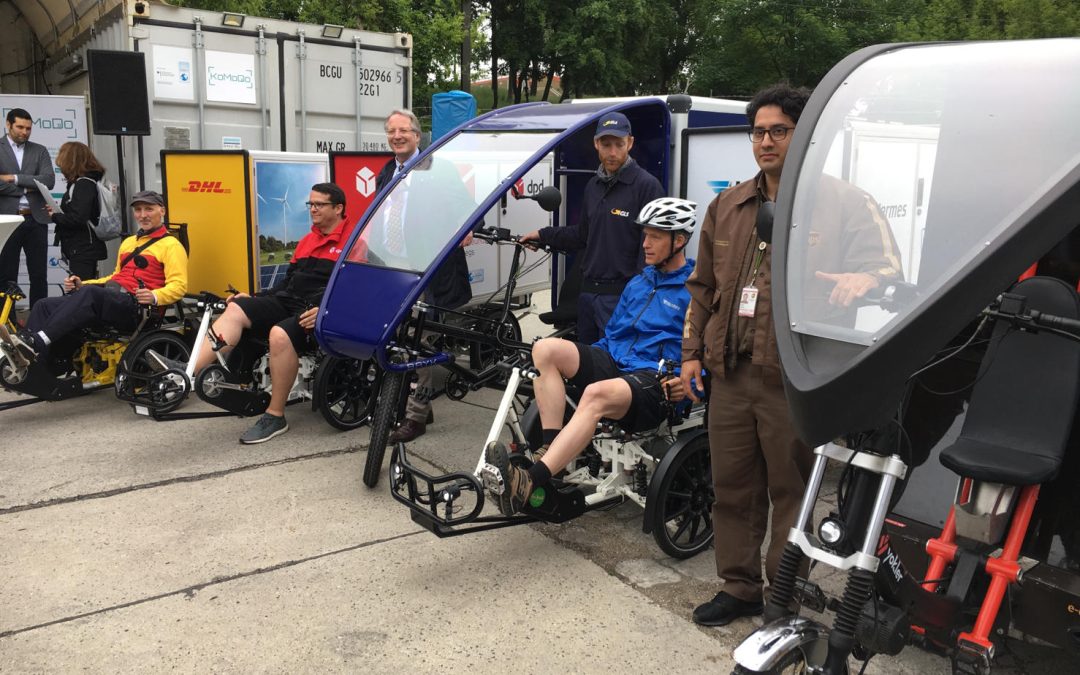The Physical Internet Observatory, developed in the context of the URBANE, supports the advancement of the Physical Internet (PI): an interconnected, efficient physical network of transportation and logistics infrastructure, enabling greater flexibility, scalability, and sustainability for transporting goods.
The platform provides expert insights on market trends, regulatory dynamics, and innovative solutions. Here are some of the latest innovations and best practice use cases to land on the observatory, ready to shape the future of urban logistics.
Decarbonising urban logistics with cooperative micro-depots in Berlin

Responding to the need for innovative solutions to streamline urban logistics, reduce environmental impact, and improve the efficiency of last-mile deliveries, the KoMoDo project in Berlin established a shared collaborative micro-depot system for last-mile delivery.
The hubs, used collaboratively by multiple courier companies including DHL, UPS, and DPD, allowed for the consolidation of deliveries, reducing the need for individual vehicles to navigate congested urban streets.
To further reduce environmental impact, KoMoDo utilised electric cargo bikes as alternative to traditional delivery vans for the final leg of the delivery. Smaller and more manoeuvrable, these cargo bikes produce zero emissions, further reducing the environmental impact of last-mile deliveries.
Streamlining last-mile delivery with modular lockers in Rome

Developed as part of a collaboration between DHL and Poste Italiane, Locker Italia addresses the challenges of urban last-mile delivery with smart, modular parcel lockers that work with multiple logistics providers.
Enabling consumers to receive and send parcels 24/7, this solution reduces delivery failures, eliminates missed packages, and enhances customer convenience. The lockers are integrated with mobile apps, QR codes, and smart routing systems, allowing users to easily pick up or drop off parcels at transport hubs, retail areas, and residential zones.
Locker Italia furthers the vision of the Physical Internet with scalable, open infrastructure that can adapt to future logistics needs and the potential for further integration of smart routing technologies and broader global interoperability with open logistics networks.
GEL Proximity: Logistics Orchestrator

The Logistic Orchestrator by GEL Proximity is a proprietary technology solution designed to enhance the efficiency and sustainability of last-mile logistics. By facilitating seamless coordination between multiple logistics operators, the system optimises the movement of parcels from micro hubs to end customers through a structured and automated process.
The solution introduces an alternative delivery flow, integrating couriers, last-mile operators and agnostics PUDO/locker networks into a unified system. By leveraging automated intermediate decoupling points, it enables more efficient parcel distribution, reducing direct-to-door deliveries.
The Orchestrator is designed to adapt to various logistics networks, supporting different delivery models while ensuring cost-effectiveness and operational flexibility. Its modular architecture allows for scalability across different logistics infrastructures, making it suitable for integration with both existing and emerging delivery ecosystems. Learn more about these innovations and discover other use cases putting Physical Internet principles into practice on the Mobility Innovation Marketplace’s Physical Internet Observatory.
